Das Olympische Bildungsmagazin
The Human Rights Perspective on Banning Russian and Belarussian Athletes from International Sports Competitions
- Patricia Wiater
- 25. März 2023
- 12:55
- Ein Kommentar
The author, Patricia Wiater, holds the Chair for Public Law, Public International Law and Human Rights at the University of Erlangen-Nürnberg, Germany, and is a member of the Centre for Human Rights Erlangen-Nürnberg. In December 2022, she was appointed as a member of the Advisory Committee on Human Rights of the German Olympic Sports Confederation (DOSB).
Licensed under CC BY SA. The article was written and published under the Headline „Peaceful and Neutral Games“ at Verfassungsblog.
In a statement issued on March 17, 2023, the German Olympic Sports Confederation (DOSB) advocated to uphold the current exclusion of Russian and Belarusian athletes and officials from international competitions. (See: Olympia-Ausschluss russischer/belarussischer Sportsoldaten ist rechtlich natürlich zulässig/JW) In light of the upcoming Olympic Games in Paris 2024 this topic is currently of great concern to the international sports world. The DOSB statement was preceded by an extensive consultation process, as part of which I had prepared a legal opinion on the human rights framework of such an exclusion. From a human rights perspective, I agree with the core of the DOSB position: the exclusion serves the aims of protecting the rights of Ukrainian athletes and of preventing sporting events from being instrumentalised for war propaganda. These are legitimate reasons for the unequal treatment of Russian athletes.
The early IOC reaction to Russia’s war against Ukraine and “serious concerns” of two UN Special Rapporteurs
Russia’s war of aggression against Ukraine led to prompt reactions: not only on the part of states, but also on the part of the sports world. On February 28, only four days after the attack began, the Executive Board (EB) of the International Olympic Committee (IOC) issued a resolution and thereby took a clear stance on the war. In order to protect the integrity of global sports competitions and for the safety of all the participants, the IOC EB recommended, inter alia, that ‘International Sports Federations and sports event organisers not invite or allow the participation of Russian and Belarusian athletes and officials in international competitions’. This recommendation was followed by a large number of international sports federations (IFs), such as the Union Cycliste Internationale, the World Curling Federation, the International Handball Federation, and the International Gymnastics Federation. FIFA and UEFA also suspended Russian clubs and national teams from all competitions. (See: Most Olympic federations suspend Russian athletes, but officials go free and The coalition of Olympic perpetrators/JW)
In September 2022, a letter addressed to IOC President Thomas Bach by the UN Special Rapporteur in the field of Cultural Rights, Alexandra Xanthaki, and by the former UN Special Rapporteur on Contemporary Forms of Racism, Racial Discrimination, Xenophobia and Related Intolerance, E. Tendayi Achiume, challenged the IOC’s position on the impact the war has on international sports from a human rights perspective. The Special Rapporteurs expressed their “serious concern” about the recommendation to ban Russian and Belarusian athletes and officials such as judges from international competitions, based solely on their nationality. For them, this raised “serious issues of non-discrimination”. They reminded the IOC that sporting bodies should commit themselves to protecting and respecting internationally recognized human rights and meet their responsibilities to protect rights and minimize harms to rights by adopting human rights policies. The Special Rapporteurs paid particular attention to the right to equality and non-discrimination, the right to participate in cultural life, which includes the practice of sport, and the right to work, each of which should be read in conjunction with the principles of equality and non-discrimination.
Soooooo, the US waged an illegal war in 2003. I don’t remember people trying to ban Michael Phelps from swimming
— UN Special Rapporteur Cultural Rights (@AlexXanthaki) February 4, 2023
Human rights obligations of sports federations
In doing so, the Special Rapporteurs did not address the fact that sports federations, as private actors, are not parties to the international human rights conventions to which they referred. Rather, their soft formulations (“should commit themselves …”) correspond to the very successful soft responsibility concept introduced by the UN Guiding Principles on Business and Human Rights (UNGP) with regards to corporations. The Special Rapporteurs thereby solidify en passant that sports federations have a special duty to uphold human rights. In line with this, I have argued elsewhere that sports federation are bound by human rights because they organise themselves with a state-like regulatory power and organisational structure (this view is confirmed by other scholars, here, here and there): sporting regulations are autonomous, apply directly on the international and/or national level and are enforced by a system of disciplinary sanctions and private dispute resolution that is largely binding. That obviously does not make the federations opposing parties in international human rights proceedings before human rights bodies. But it does mean that their legislative and imperative measures must, in light of the particularities of sports, comply with national and international human rights. The growing willingness of sports federations to subject their own actions to international human rights standards and to align them with the UNGP (see here and there) confirms this assessment.
The renewed position of the IOC
The IOC took note of the Special Rapporteurs’ human rights reminder. In response to the letter and following consultations with, among others, IOC Members, the global network of athletes’ representatives, the International Federations (IFs) and the National Olympic Committees (NOCs), the IOC EB announced on 23 January 2023 its renewed position on how to approach a possible future participation of Russian and Belarusian athletes. According to the IOC, with regard to the individual athletes with Russian or Belarusian passports, the vast majority of the participants in each of the consultation calls expressed that respecting the rights of all athletes meant being treated without any discrimination, in accordance with the Olympic Charter. No athlete should be prevented from competing just because of their passport. A pathway for athletes’ participation in competition under strict conditions should therefore be further explored. Such strict conditions being: athletes would participate in competitions as “neutral athletes” and in no way represent their state or any other organisation in their country, and only athletes who fully respect the Olympic Charter would participate. Only those who have not acted against the peace mission of the IOC by actively supporting the war in Ukraine could compete. The IOC is currently engaged in a process of reflection and consultation on the issue of re-admission.
On the fascist Russia and its Olympic participation initiated by IOC and FIE: Let’s take a look at the Olympic Charter. quite a few points there that could (if one wanted to) clearly solve the issue:
— SPORT & POLITICS (@JensWeinreich) March 12, 2023
„Nobody is entitled as of right to participate in the Olympic Games.“ pic.twitter.com/YpCtgKvgvg
The fact that the IOC’s initial strict “no” has turned into a “let’s discuss a yes, but”, provoked diverse and controversial reactions on the part of sports and politics, with a tendency of political (see also here) commentators and some IFs to uphold the strict “no” approach, while other IFs (see also here and there) indicated their openness for the IOC’s „yes, but“ approach. The DOSB statement is the newest contribution to this discussion.
The multidimensional nature of the human rights situation
The reality of human rights protection is, however, more complex: there is neither a clear “yes” nor “no” answer, nor a uniform one-size-fits all “yes, but” approach as indicated by the IOC as the starting point for internal debates. Instead, different aims pursued with the exclusion of different groups of athletes call for a differentiated human rights approach to the re-admission issue.
Indeed, as indicated by the Special Rapporteurs, excluding Russian and Belarusian athletes from international sports competitions constitutes unequal treatment and has to be measured against the standard of autonomous and accessory prohibitions of discrimination. The latter are applicable in the context of the right to participate in cultural life, Article 15 para. 1 lit. a ICCPR, and the right to work, Article 6 and 7 ICCPR, which must be examined independently as possible violations of civil liberties and in conjunction with the prohibition of discrimination. However, the unequal treatment of Russian and Belarusian athletes only constitutes inadmissible discrimination and thus a violation of international human rights if it cannot be justified on legitimate grounds. For interpreting universal guarantees, the case-law of the European Court of Human Rights (ECtHR) gives important impulses. Since the unequal treatment is based on the nationality of the athletes, according to the ECtHR in the case of Andrejeva v. Latvia, there must not only be a reasonable relationship of proportionality between the legitimate aim pursued and the means employed; sports federations that decide on the exclusion must also be able to put forward “very weighty reasons” in order to justify a difference of treatment based exclusively on the ground of nationality. In decisions on Article 14 ECHR, the ECtHR has recognised a variety of legitimate purposes relevant for the subject matter, such as the protection of the human rights of others (Khamtokhu and Aksenchik v. Russia [GC]) or the restoration of peace (Sejdić and Finci v. Bosnia and Herzegovina [GC]).
(You may also see: Russland bei Olympia: Usmanows FIE beglückt das IOC mit Hilfe des Deutschen Fechter-Bundes,
IOC: „an embarrassment to the international world of sport“, IOC fordert NOKs auf, bei Sportministern zu intervenieren, Olympische Komplizen eines abscheulichen Krieges/JW)

On the first aspect: when deciding on admission rules for international sports competitions, IFs are not only obliged to refrain from interfering with the human rights of persons who are subject to their state-like sovereignty (in our case: Russian and Belarussian athletes), they also have the duty to make a positive contribution to the protection of human rights of other athletes. In the context of Russia’s war of aggression against Ukraine, this duty refers in particular to the protection of the human rights of Ukrainian athletes. If Ukrainian athletes are at risk of being directly or indirectly confronted with the war in international sporting competitions, this can have a negative impact on their right to mental health, the protection of their dignity, as well as on their own right to undisturbed participation in cultural life and their right to work. This can be assumed, for example, if Ukrainian athletes have to witness war-glorifying symbols or gestures being displayed at sporting events (as it has happened in sport events which were open to Russians,) or if they have to compete directly against athletes who belong to the aggressor state Russia. Since Belarus is currently supporting Russian’s war without actively participating in combat operations with its own troops, it is a matter of debate whether the participation of Belarussian athletes could cause similar destructive effects on the human rights of Ukrainians. The same holds true for Russians who openly and publicly oppose Putin’s war. The danger, raised by IOC President Bach in the resolution from February 2022, that the exclusion could “punish” athletes for the decisions of their government, only applies to this group of Russians, who have consciously resisted their totalitarian state. For Russians who don’t oppose, the strict conditions for re-admission as proposed by the IOC would also undoubtedly constitute “less restrictive means” in the sense of human rights law. They would, however, only be equally effective for realizing the legitimate aim of protecting the human rights of Ukrainians if their strictest and complete observance were feasible. There are reasonable doubts that this will be the case.
A clearer “no” answer to the admission question can be given with regards to the second legitimate aim, the peace restoring character of banning Russian athletes from international competitions. Admission rules and regulations of sports federations must be shaped in light of the principle of political neutrality of sports (Article 1.2 IOC Code of Ethics), which is framed by the overriding Olympic postulate of peace that guides international sports (Fundamental Principle 2 of Olympism). The IOC and IFs thus have the task and duty, within the framework of their respective competences, to contribute to the promotion of peace. With the current ban, they make an important peace contribution by preventing international sporting events – and athletes – from being (ab-)used for the purpose of Russian war propaganda. After the partial mobilisation of the Russian population for the war in September 2022, the president of the Russian NOC, Stanislav Posdnyakov, was quoted saying that it would be an honour for every Russian athlete if he or she could contribute to the success of the war. This statement explicitly refers to the person of the athlete, not to external symbols such as a flag that show affiliation to the Russian state and its war. According to this statement, the participation of Russian athletes supports the war. Conversely, excluding Russian athletes serves the purpose of having a de-escalating effect on the conflict. For Posdnyakov, the athlete is an abstract instrument for war propaganda – regardless of whether he or she openly displays support for the war. It must be assumed that this abuse of international sporting events for war propaganda cannot be effectively prevented by Russian athletes competing under a neutral flag since the actual act of instrumentalisation refers solely to the human capital “athlete”. Again, this comes with a caveat with regards to Belarus where a similar propagandistic abuse of sports would have to be proven.
What remains is that the Special Rapporteurs’ “serious concern” is not entirely substantiated. To protect the rights of Ukrainians and at least in view of the peace purpose pursued by these exclusion measures, the unequal treatment of Russian athletes is justified.
Two comments from Jens Weinreich: The content of the article is of course unchanged – including numerous links to IOC propaganda and IOC lobby organisations such as the EU Office, which I don’t consider as serious sources. It is important to note that, in contrast, these institutions never refer to sources that do not disseminate IOC propaganda.
All links inserted in (brackets) and italics do not come from the author, but were inserted by me (JW) as supplementary and explanatory reading. This also applies, of course, to the complementary tweets.
Sie wollen Recherche-Journalismus und olympische Bildung finanzieren?
Do you want to support investigative journalism and Olympic education?
SPORT & POLITICS Shop.
Subscribe to my Olympic newsletter: via Steady. The regular newsletter is free. Bur you are also free to choose from three different payment plans and book all product at once!
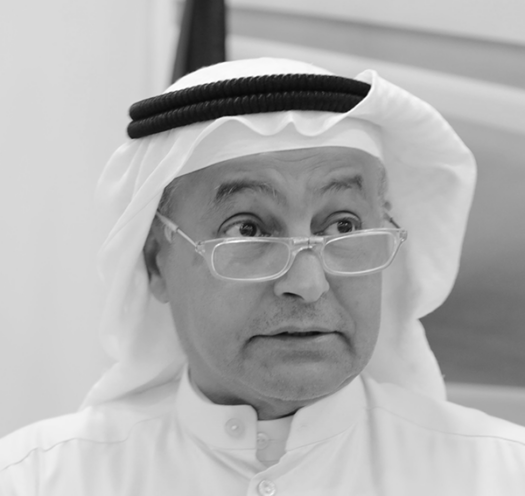


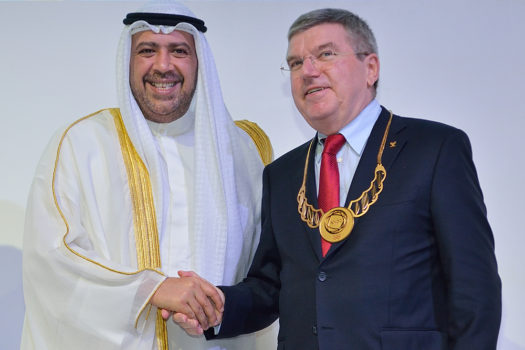
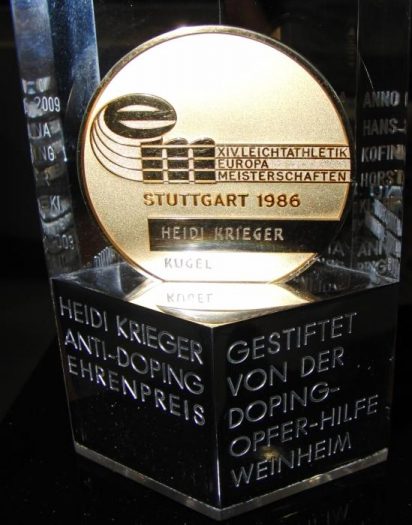
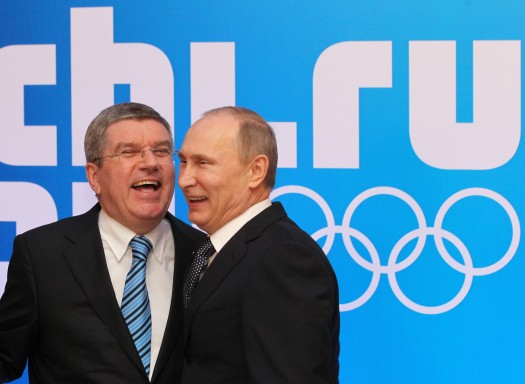
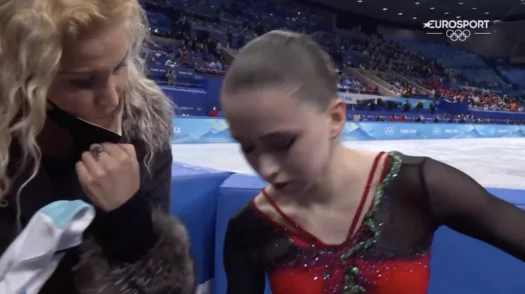
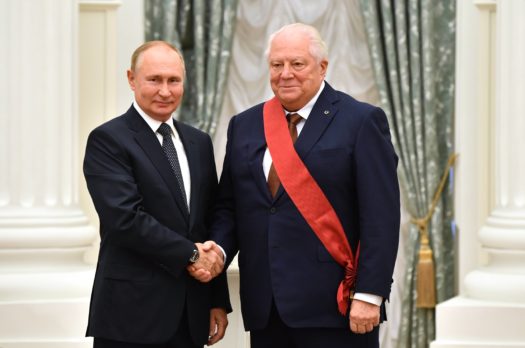
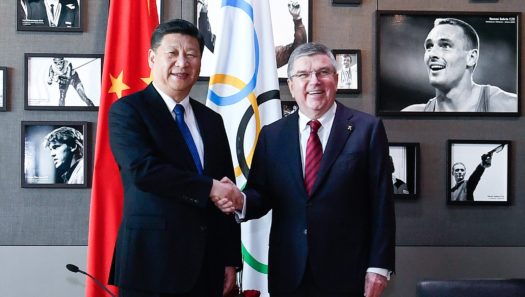
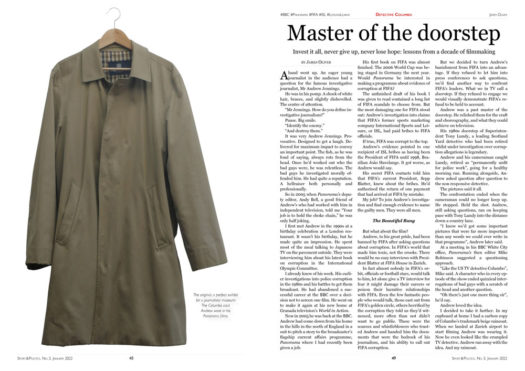
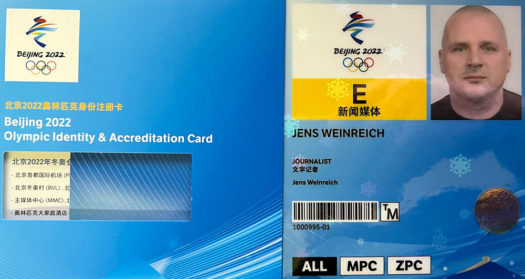
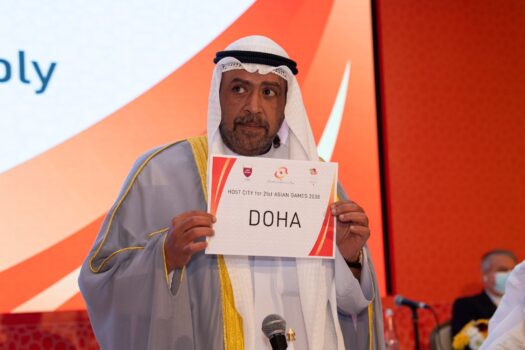
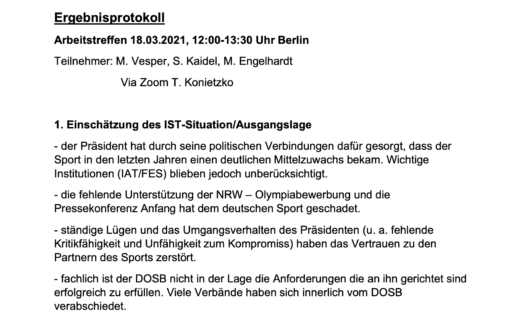
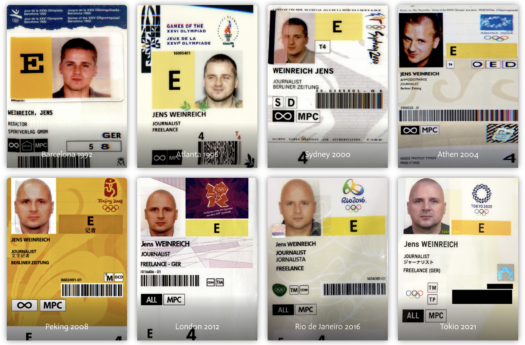
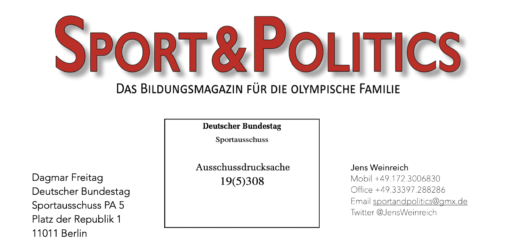
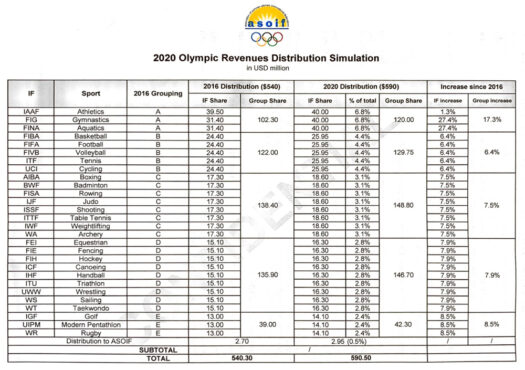
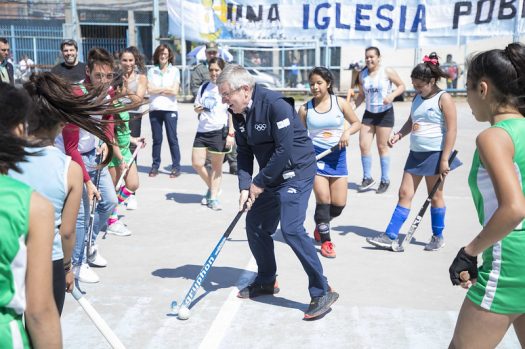
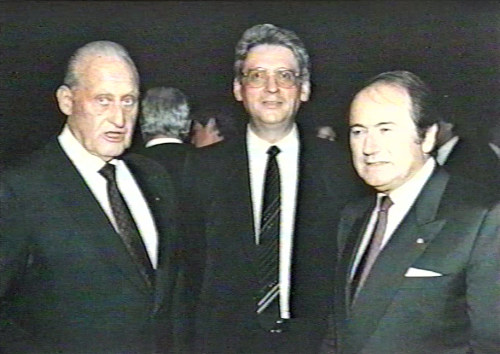
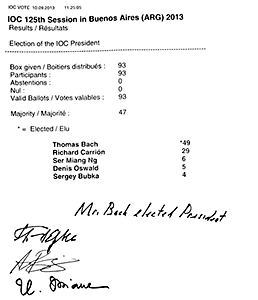
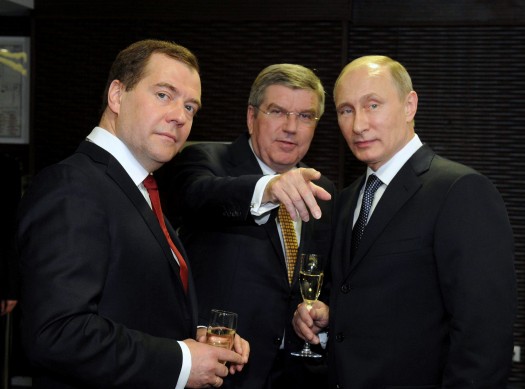
Pingback: The Russia question: Coe and Bach are united in history, and divided by history - SPORT & POLITICS